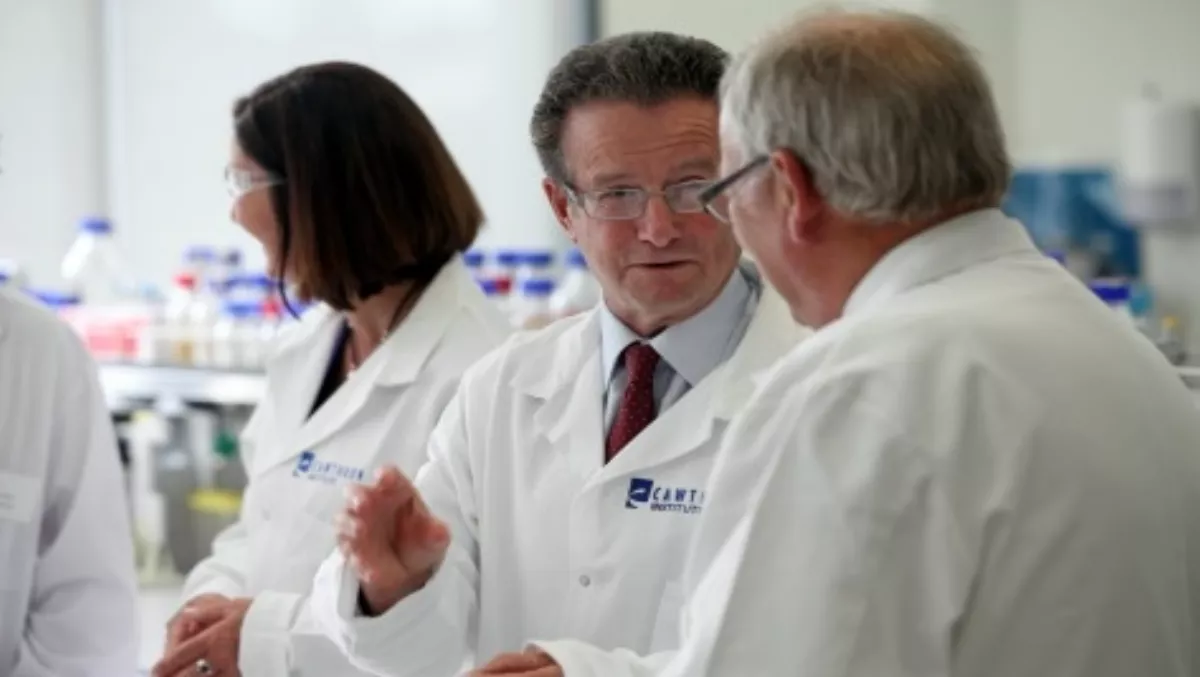
Scientists around the world collaborate with super high speed internet
Cawthron Institute has joined REANNZ, New Zealand's research and education network, to offer an advanced network and super high speed Internet for research, education and innovation entities in New Zealand.
Based in Nelson, Cawthron Institute is New Zealand's largest independent science organisation, specialising in food and water research for the primary production sector.
Its scientists are involved in research all over New Zealand and around the world.
Dave Ashcroft, Cawthron Institute finance and business support manager, says, "We're always looking for ways we can improve our national and international research collaborations and services we offer our clients.
"Joining REANNZ, means we are able to provide our scientists with almost instant access with their colleagues around the globe, and really improve the flow of information and our ability to share big data.
The new REANNZ network connection at Cawthron Institute will allow researchers to run models on supercomputers more efficiently, to predict the weather or understand climate change.
They will also be able to send data and collaborate more easily with their colleagues around the world.
Steve Cotter, REANNZ CEO, says he is excited to be working alongside Cawthron Institute to further enable their core mission to provide high-value science and services for New Zealand's primary production sector.
"A high-speed network like REANNZ is one way to guarantee researchers and scientists can collaborate and innovate alongside their international colleagues - ensuring we, as New Zealand, have a place on the global stage," he says.
REANNZ and the 100+ research and education networks worldwide differ from commercial networks in the way they do engineering.
Their networks are optimised for performance, not profitability, meaning REANNZ connects most members at 10 gigabits per second - or about 1,000 times the speed of your average DSL connection.
This enables much faster data transfer speeds and enables collaboration with international colleagues.
Charles Eason, Cawthron Institute chief executive professor says, as a leading science organisation being able to send big data fast is crucial.
"We're an information organisation in an information era, and faster connectivity to the world outside of Cawthron is a fundamental part of our operations and digital strategy," he says.
The network was connected in early June, and Cawthron Institute scientist Andrew Fidler has already noticed a difference.
As part of an international research project investigating how bar-tailed godwits 'know' when to migrate, Fidler collaborated with colleagues in Rio de Janeiro, Brazil.
The combined genetic and behavioural research project requires Fidler to transfer huge DNA sequence files of more than 200GB.
These could previously take up to several days to arrive, but due to the REANNZ partnership it now takes minutes to send the same files.
"The high speed REANNZ network has made a very significant difference to all the research at the Cawthron Institute that involves large data-sets, it's like going from dial-up to ultrafast broadband," Fidler says.
Cawthron Institute's molecular biologists are also using this new technology to work with scientists at New Zealand Genomics Limited in Auckland and Massey.
Until now, they had to send large data sets by courier on a USB memory stick - which could take days to arrive.
Susie Wood, Cawthron Institute scientist says, "When you're excited to see your data it's frustrating to have to wait a few extra days for it to arrive by courier, now we can get it within a few hours of it been generated.
"That's not only much better for us as researchers, it's also good for our clients who are funding this research as it saves time, and money.


